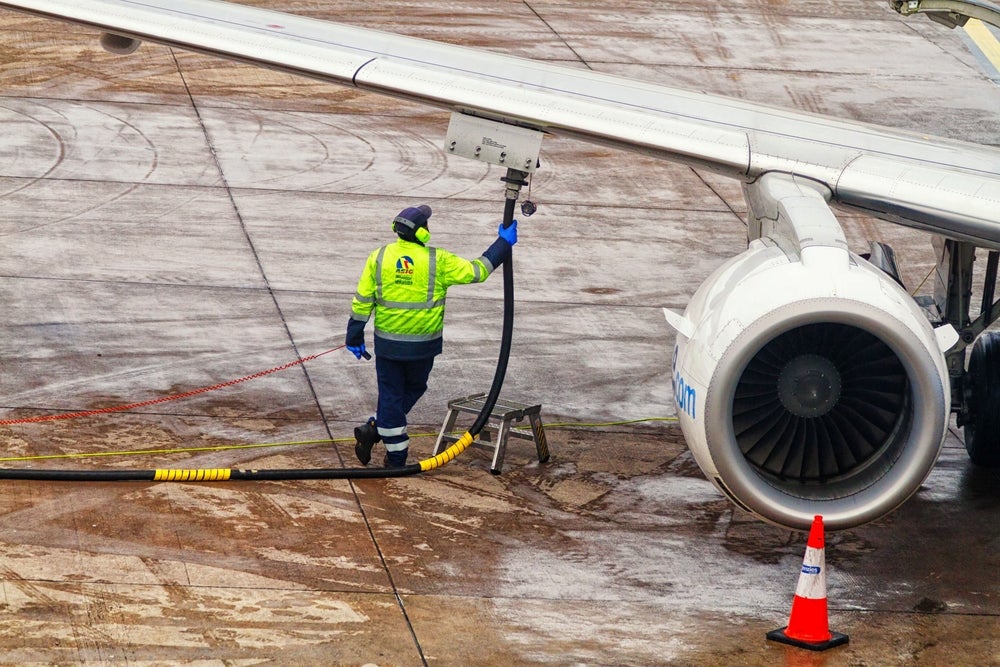New research from the UK’s climate watchdog, the Climate Change Committee, has found that the aviation industry will be the country’s leading emitter of greenhouse gases by 2040, predicted to account for 27% of all carbon emissions by this time.
This reflects the decarbonisation challenges faced by the sector in comparison to others. At the same time, the aviation industry only looks set to grow with expansions at Heathrow and Gatwick airports expected to be an important part of the UK government’s efforts to stimulate economic growth.
Sustainable aviation fuel (SAF) has a critical role to play in enabling the expansion of UK aviation without compromising on environmental protection.

And its importance is recognised by the country’s first-ever SAF mandate coming into law earlier this year. This starts by requiring 2% of the UK’s total jet fuel demand to be SAF this year, with this to then increase linearly to 10% in 2030, and then 22% by 2040. In total, it aims to deliver up to 6.3 megatonnes of carbon savings per year by 2040.
So, the production of SAF will need to scale to deliver against demand. But there are challenges to overcome first. There are already a number of SAF projects underway in the UK, yet complexities in the sector have stifled progress.
The SAF mandate, however, provides fresh impetus for the industry to navigate the challenges holding back the scaling of SAF production, with collaboration at the heart of the solution.

US Tariffs are shifting - will you react or anticipate?
Don’t let policy changes catch you off guard. Stay proactive with real-time data and expert analysis.
By GlobalDataOvercoming barriers
There are several barriers that have stalled the progress of SAF projects in the UK. Chiefly, a lack of certainty around what actually counts as SAF in the UK has held back investment, although the recent mandate serves to rectify this.
One of the key obstacles currently is a concern about the high costs involved with these projects. The advanced technologies and feedstock required for SAF makes it more expensive than traditional jet fuel. This leads to SAF being less competitive, causing airports and airlines to be reluctant to adopt it without incentives.
And when it comes to the feedstock for these projects, those who look to use waste oils, agricultural residues, or dedicated energy crops, are having to grapple with concerns around availability of supply, with the sector being in competition with other sustainable industries like biofuel production.
This means that despite the need for financial resources to scale up production and unlock the significant potential of the industry, investors are cautious.
Helping projects to take off
Despite these barriers, we are seeing ways for businesses to overcome them. Especially amongst smaller schemes, we are seeing innovative technologies emerging to help get the projects we need off the ground.
For instance, flexibly sourcing hydrogen from biomethane or through production by electrolysis is one method that we are seeing to provide an alternative to waste oils, helping to address issues with feedstock availability. Alongside this, there are also process innovations that are now being leveraged to maximise SAF yields, reducing waste and lowering the carbon intensity of the production process.
At Bilfinger UK, we are also involved in various SAF projects as construction partners, helping to reduce risk and drive cost optimisations.
The key to being successful in this has been engaging with stakeholders and subcontractors early, to provide time for detailed discussions and allow for accurate cost estimates. This, alongside building an honest, transparent relationship with clients to foster collaboration, was essential in helping to overcome the uncertainties that we have seen when it comes to SAF.
And we are also seeing efforts from the government to help alleviate investment concerns, with the Advanced Fuels Fund being extended to £63m. There is now a clear push amongst both the public and private sectors to ramp up domestic SAF development.
Scaling SAF
The SAF mandate has fired the starting gun for the sector, but there are still actions that need to be taken to help the sector make the progress it needs and realise its full potential in driving our transition to a greener economy.
In the main, a revenue certainty mechanism still needs to be finalised by the UK government to provide more certainty on the funding and future earnings of projects and prevent developers from being left in limbo.
But once this is implemented, it will then be up to organisations across all levels of the supply chain to engage in the collaboration needed to help our SAF projects take off.





